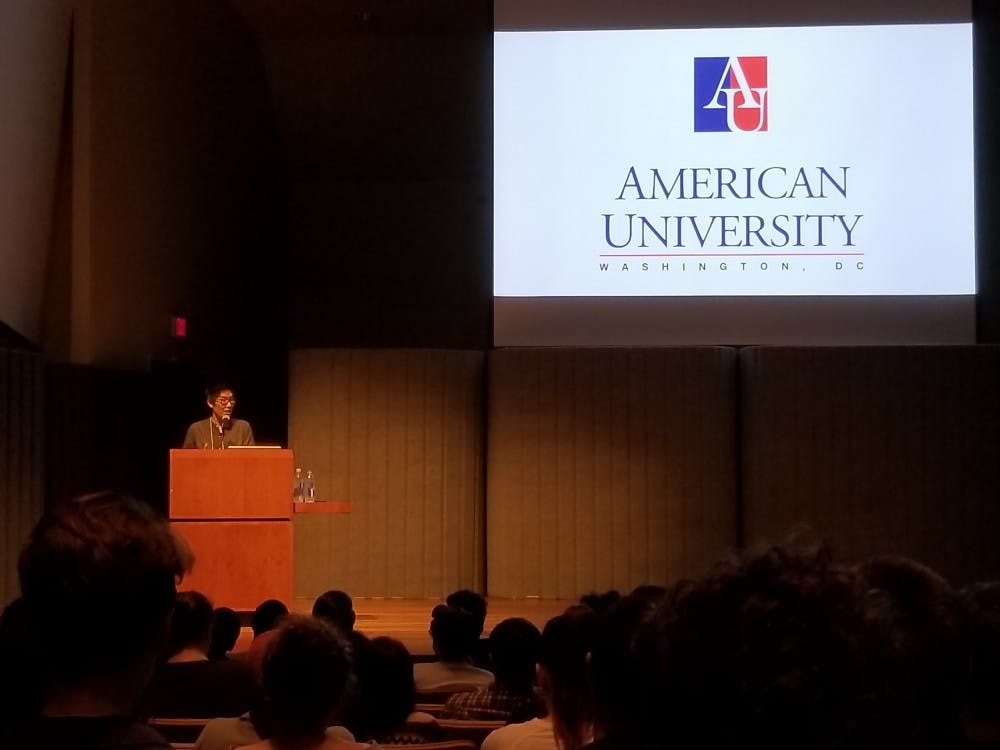The “Thinking Trans // Trans Thinking” Conference at AU explored transgender philosophy and included different events and speeches on Oct. 5-6.
Organized by AU professor Perry Zurn and University of North Carolina-Charlotte professor Andrea Pitts, the first keynotes of the conference on Friday were delivered by Mel Chen, a professor of gender and women’s studies at University of California, Berkeley, and Che Gossett, a writer, activist and Ph.D. candidate in Trans/Gender studies at Rutgers University.
“It was very important to us that we bring people who have intersectional identities, and in a sense we all do, but we didn’t want a conference on trans issues to not address race, gender and disability,” Zurn said.
Chen described their address as “a very personal take involving disclosure.” They centered their speech around the complexity of using the pronoun “it.”
Gossett’s address, titled “Abolitionist Entanglement: Blackness, Trans Aesthetics, and Ending the Grammars of Capture,” focused on analyzing films centered around black trans aesthetics.
During the talk, Gossett showed a short film titled “Atlantic is a Sea of Bones,” a film about black queer and trans life. Gossett said the film affected them deeply so they wanted to share it with the audience, hoping it would influence them as well.
Later in the event, Eli Clare was the recipient of the Schlegel Legion of Honor. Clare is a disabled and gender-queer academic who writes and speaks about gender identity and queerness. While accepting the award, Clare spoke about holding onto dreams even during difficult times in the U.S. under the Trump administration.
On Saturday, the conference featured a roundtable event, something that Pitts felt was important to hold on the second day because it gave the group a chance to reflect collectively and discuss how they want to see the profession of philosophy and higher education itself to be more affirming for trans people.
Grayson Hunt, program coordinator of the LGTBQ Studies Program at the University of Texas at Austin, attended the conference and expressed how important it is for students to engage with these events.
“They may not know they’re part of the community,” Hunt said. “This is a great way to kind of have yourself reflected in a community. Folks who aren’t trans get to become friends with trans people. People ask me how they can support those in the LGTBQ community, and I always tell them to find friends that they can support.”




